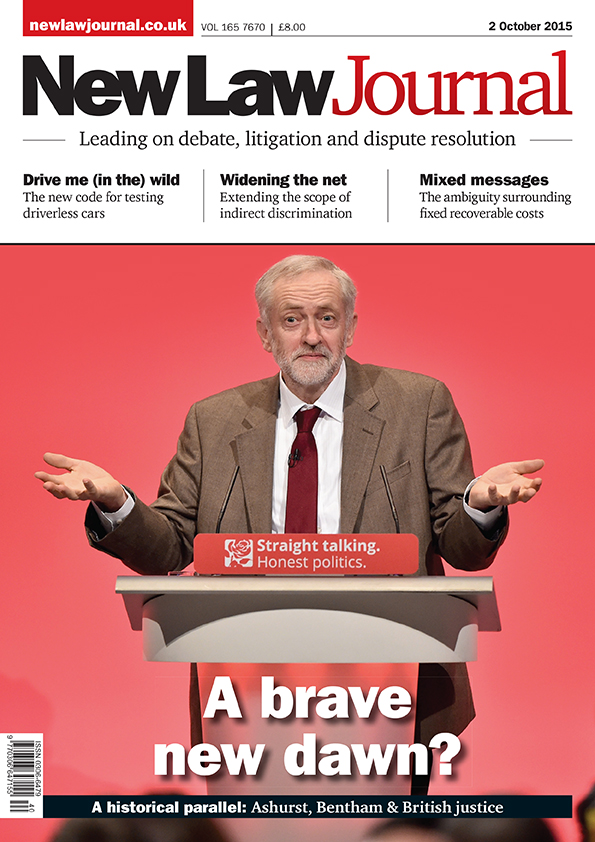
Stephen Acton examines developers’ delays in completion of off-plan purchases
R (on the application of Brooks) v Islington London Borough Council [2015] EWHC 2657 (Admin), [2015] All ER (D) 103 (Sep)
Miettinen v Sweden T-395/13 , [2015] All ER (D) 115 (Sep)
Horada v Secretary of State for Communities and Local Government [2015] EWHC 2512 (Admin), [2015] All ER (D) 370 (Jul)
Alec Samuels opens the case of the architect’s certificate
Re DGP [2015] EWCOP 58, [2015] All ER (D) 117 (Sep)
Regents University v Regent’s University London [2013] EWPCC 39, [2013] All ER (D) 50 (Sep)
Pre-nups: the search for certainty continues, says Ed Heaton
When is military personnel owed a duty of care outside combat situations? Elizabeth Milbourn investigates
MOVERS & SHAKERS

NLJ Career Profile: Ken Fowlie, Stowe Family Law
Ken Fowlie, chairman of Stowe Family Law, reflects on more than 30 years in legal services after ‘falling into law’

Gardner Leader—Michelle Morgan & Catherine Morris
Regional law firm expands employment team with partner and senior associate hires

Freeths—Carly Harwood & Tom Newton
Nottinghamtrusts, estates and tax team welcomes two senior associates







